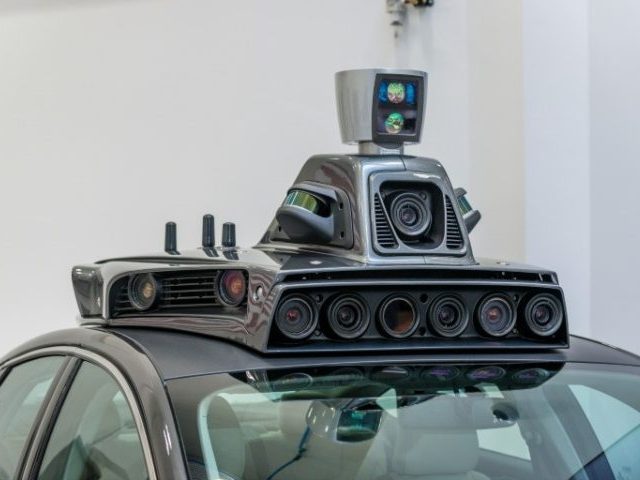Beverly Hills Mayor John A. Mirisch has taken Uber’s side in its fight with the State of California over the company’s effort to roll out self-driving cars without a special permit.
Mirisch backed Uber even as other civi leaders, such as San Francisco Mayor Ed Lee, have opposed Uber’s provocative move.
After losing labor court disputes and failing to get the patent protection for ride-hailing, Uber Technologies, Inc. seems willing to bet the company that it can continue to operate un-permitted self-driving cars in California.
Breitbart News noted that after successfully launching the nation’s first legal “autonomous” (self-driving) ride-hailing pilot in Pennsylvania in August, Uber on December 14 launched a commercial self-driving service in California, without obtaining a Department of Motor Vehicle permits, as Google and 20 manufacturers have done.
After DMV general counsel Brian Soublet wrote a cease-and-desist letter to Uber’s Head of Advanced Technology, Anthony Levandowski, threatening legal action, he only acknowledged that there was a “debate” over Uber needing a permit to operate self-driving cars. Levandowski claimed that with a stand-by driver “behind the wheel” making the vehicles “less than fully autonomous,” Uber does not need any California permit.
The hard-ball play by Uber comes as the company is under enormous and legal and regulatory assault worldwide, including the legality of utilizing contract operators without treating them as employees, and its failure to be awarded key ride-hailing patent rights.
U.S. District Court Judge Edward Chen in August denied Uber’s $100 million offer to settle a class action lawsuit involving about 380,000 Uber drivers that were misclassified in the U.S. as contractors, rather than employees under state and federal labor law.
Two months later in October, Uber lost what was billed as the UK employment law “case of the year,” when an employment tribunal ruled that the correct legal definition for two of its “App Only” PHV (Private Hire Vehicle) operators were “employees,” rather than “partners.” That means that approximately 60,000 Uber operators are entitled to all the “attendant statutory protections” of sick pay, minimum wage and guaranteed holiday time.
Given the similarity of labor laws in the European Union and the British Commonwealth nations around the world, the ruling my have significant ramifications impacting about 250,000 international drivers that can now sue Uber for misclassification financial damages.
Uber’s ability to dominate the ride-hailing industry it created with the “fundamental idea of a taxi-calling app” rests entirely on U.S. Patent Application 13/672,658 that covers
A method for determining a location relating to an on-demand service on a computing device is provided. One or more processors receiving a transport request from a user. The transport request specifies at least one of a pick-up region or a drop-off region…
But U.S. Patent Office and the courts have refused to grant the issue of that patent several times. Uber is so desperate to secure the issuance of the application that it is still making further appeals for a “Request of Continued Examination,” according to report by Seeking Alpha’s Andrew Connor.
General Motors, which made a $500 million investment in Uber rival Lyft, acquired the intellectual property rights of former ride-sharing company Sidecar. One analyst suggests that the Sidecar acquisition now gives GM “the power to shut down Uber” in the ride-hailing business.
Uber now faces an enormous set of legal and financial challenges due to its current business model relying on individual drivers using their own vehicles for “ride-hailing.” But with 34 issued patents, including 8 acquired recently from Microsoft, Uber is positioned to dominate a “ride-dispatch” service that relies on self-driving cars owned by Uber.
Google and insurance interests led an intensive lobbying campaign in 2012 to pass several pieces of California legislation that authorized the DMV to create regulatory rules and implement autonomous vehicle tests across the state.
Uber was only a start-up at that time, but has been actively lobbying the DMV in Sacramento over the last two years regarding issues surrounding ride-hailing services and autonomous vehicle regulations.
Uber may be calculating that the potential implosion they face with their current business model is so risky, it may be worth “betting the farm” in a battle to convince Gov. Brown and the Democrat-controlled Legislature that California needs to fully-deploy autonomous vehicles.
Beverly Hills has already planned for “a robot fleet of mass transit vehicles” to ease traffic in the congested area — hence the mayor’s support for Uber.

COMMENTS
Please let us know if you're having issues with commenting.